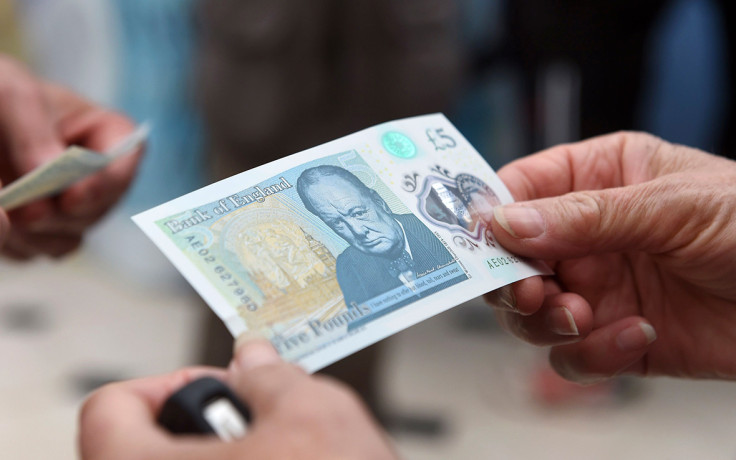Brexit: Weary pound should be doing a lot worse than it is
An EU referendum vote in favour of Brexit is now a very real possibility as two recent opinion polls – by YouGov and TNS – show the 'leave' campaign in the lead by between 2% and 4%. Each time we see such polling data, the pound takes a tumble.
Right from the start of the current calendar year, the British currency has been carrying what foreign exchange traders describe as 'Brexit risk' or 'discount' despite the country's economy being on a reasonably sound footing.
Things came to a head when the pound traded at a six-year low versus a buoyant dollar for much of the week commencing 22 February. At one point it changed hands at $1.4085, having lost 0.50% when Prime Minister David Cameron stood up at the House of Commons dispatch box to set 23 June as the date for the referendum.
Yet the pound recovered, and despite ongoing volatility, its decline has not turned out to be quite as steep as feared. Furthermore, quite like this week itself, even when polls have suggested that the great British public might be leaning in favour of Brexit – the proverbial trading drag has been nowhere near the frenzy seen earlier in the year.
That's partly to do with what is unfolding elsewhere. Among the six global currency crosses that the pound is benchmarked against, the dollar and euro are not exactly in a happy place either. Following a rate hike earlier this year, the US Federal Reserve has appeared reluctant to repeat the feat before the dust settles on the country's presidential election.

Chairwoman Janet Yellen has flagged macroeconomic headwinds and uncertainties facing the US economy on several occasions, with Brexit featuring prominently among them. Meanwhile, the euro has its own malaise to contend with. Lacklustre Eurozone growth is nothing to write home about and the issue of Greece's financial health is still far from resolved. Paradoxically, a potential Brexit is bad for the euro as well.
Put it all together, and a competitive currency kiosk ought to switch your pound for two cents less than $1.4489 and €1.2799; the market offered rate on 9 June. Even a rip-off merchant would give you a better rate than what we saw in February. However, the big question is where from here, depending on which way the EU referendum goes?
The market remains jittery with investors piling safe-haven trades into the yen, seeking the sanctuary of the Japanese currency. As Kit Juckes, head of foreign exchange at Societe Generale, notes: "It is clear that one of the reasons for yen demand at the moment is as a form of 'Brexit' insurance. Perhaps the real driver of a higher EUR/JPY – the forex trade that stands out most on relative real yields – could be the UK remaining in the EU after 23 June."
With a play on the yen not being the only game in town, anecdotal evidence suggests buying EUR/USD currency option puts as protection ahead of the EU referendum is also finding favour with some. Away from currency markets altogether, I have spoken to several gold traders based in London's Bayswater, Hatton Garden, Mayfair and Golders Green areas who report a minimum sales upturn of 5% on the month, with one reporting a 10% upturn.
In the event of a Brexit, most predict brisk business for them with people seeking the safety of gold. In a nutshell, the countdown to the vote is bad for investor confidence, short-term positive for gold and remains a weight around the pound's neck.
Rabobank senior currency strategist Jane Foley says, "At the moment, the foreign exchange market is losing its risk appetite and given that the Brexit risk is one of these big hurdles out there for the market and for risk appetite, in this environment the pound would do badly."
Broad consensus within the currency market suggests that a Brexit would see the pound fall to the €1.10 to €1.15 and $1.25 to $1.30 ranges versus the euro and dollar respectively. Quite the contrary, a vote to remain in the EU would ease pressure on the British currency and in turn bring the inherent weaknesses of both these currencies to the fore resulting in a potential 5¢ uptick.
Admittedly, for holidaymakers heading stateside or towards Eurozone climes, buying foreign currency could not have come at a worse time. However, as we enter the home stretch of Brexit-driven uncertainty, it is worth remembering things could have been a lot worse.
© Copyright IBTimes 2025. All rights reserved.






















